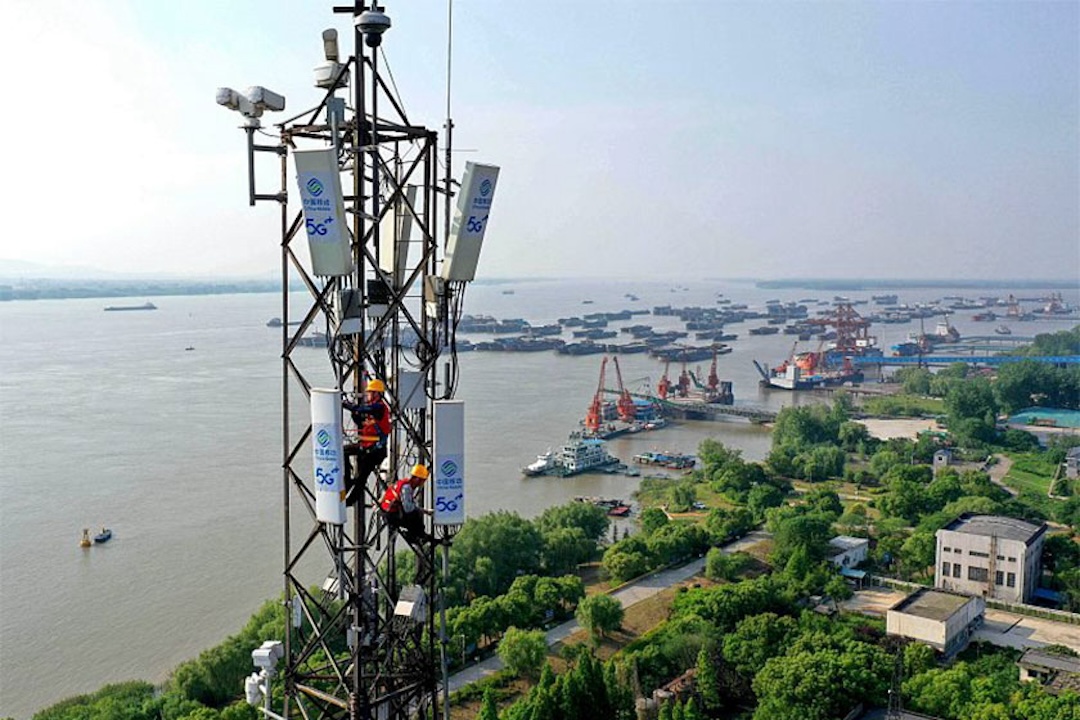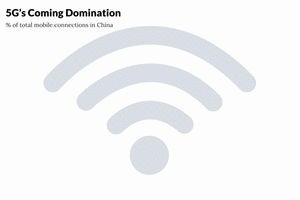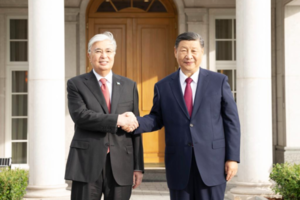Dawn of 5G-A Promises to Bring AI and Much More to Your Mobile
Listen to the full version

Commercial use of 5G Advanced networks starts this year as telecom operators and device manufacturers gear up for the upgraded wireless technology which will allow the use of powerful artificial intelligence (AI) on mobile devices.
More than 60 telecom operators and partners have announced the imminent arrival of commercial 5G-A while over 30 types of smartphone and other mobile devices will be ready this year to support the advanced wireless technology, according to David Wang, Executive director and chairman of the ICT Infrastructure Managing Board at Huawei Technologies Ltd.

Download our app to receive breaking news alerts and read the news on the go.
Get our weekly free Must-Read newsletter.
- DIGEST HUB
- Over 60 telecom operators and 30 types of devices are set to support 5G Advanced (5G-A) networks commercially this year, elevating mobile AI applications.
- 5G-A can enhance bandwidth, reduce latency, and increase connection density by 10 times compared to 5G, enabling advanced tech like glasses-free 3D and virtual reality.
- China is leading with large-scale 5G-A deployments, while global adoption is slower with 20-25% 5G subscription rates.
- Huawei Technologies Ltd.
- Huawei Technologies Ltd., led by Executive Director David Wang, is gearing up for the commercial use of 5G Advanced (5G-A) technology. David Wang highlighted that 5G-A will significantly enhance mobile devices with AI capabilities, ushering in a new "mobile AI era." Huawei is actively involved in the development and commercialization of this next-step wireless technology, contributing to advancements in mobile AI applications and connectivity.
- Qualcomm Technologies Inc.
- Qualcomm Technologies Inc. is actively involved in advancing 5G and AI applications. According to senior vice president Durga Malladi, the company collaborates with Microsoft, Samsung, Xiaomi, and Oppo to integrate AI features on devices. Qualcomm believes in the transformative potential of 5G-A, expecting it to enhance wireless access, integrate satellite communication, and benefit more people. They've integrated AI insights into all their products, spanning handsets, PCs, XR, automotive, and more.
- China Unicom
- In February, China Unicom established the nation's first large-scale 5G-A network pilot in Beijing, covering the city's core area. This marks one of the initial commercial deployments of 5G Advanced networks in China.
- China Mobile
- China Mobile launched its 5G-A commercial service in March, initially covering 100 cities and aiming to expand to 300 cities by year-end. Its Shanghai branch plans to establish 14,000 5G-A stations to offer full coverage in Shanghai’s main urban areas, aiming to create the world's largest 5G-A network.
- Xiaomi Corp.
- Xiaomi Corp. is a Chinese device maker that has launched mobile phones supporting 5G-A networks. The company is among several manufacturers integrating 5G Advanced technology, which enables faster speeds, reduced latency, and enhanced connectivity, facilitating advanced AI applications on devices.
- OPPO
- OPPO is one of the Chinese device makers that have launched mobile phones supporting 5G Advanced (5G-A) networks. The company is collaborating with Qualcomm to integrate AI features on devices, which allows for more advanced AI applications and interactions.
- Vivo
- Vivo, a Chinese device maker, has launched mobile phones supporting 5G Advanced (5G-A) networks. This marks Vivo's participation in the commercialization of upgraded wireless technology, which will enhance AI applications on mobile devices, promote intelligent human-machine interactions, and offer advanced tech solutions.
- Honor
- Honor, a Chinese device maker, has launched mobile phones supporting 5G-A (5G Advanced) networks according to the article. This rollout is part of the broader commercial deployment of 5G-A technology by various manufacturers and operators.
- Samsung
- Samsung has worked closely with Qualcomm to integrate AI features on devices as part of the advancements in 5G and AI applications. This collaboration aims to bring evolutionary changes to mobile devices, enhancing their capabilities and performance.
- Ericsson
- Drazen Jarnjak, head of networks in North-East Asia for Swedish telecom giant Ericsson, takes a cautious stance on 5G-A commercialization. He notes that only 20%-25% of people worldwide are subscribed to 5G services, with few countries like the U.S., China, and India developing standalone 5G networks. He emphasizes that true 5G capabilities require standalone networking.
- Microsoft
- Microsoft has been working closely with Qualcomm to integrate AI features on devices. This collaboration is part of Qualcomm's broader effort to embed AI capabilities across various product lines, including handsets, PCs, XR, industrial equipment, and the consumer Internet of Things.
- 2019:
- 5G began commercial use.
- 2024:
- Commercial use of 5G Advanced networks starts as telecom operators and device manufacturers gear up for the upgraded wireless technology.
- As of 2024:
- Chinese telecom operators and smartphone manufacturers have begun deploying 5G-A commercially.
- February 2024:
- China Unicom set up the nation’s first large-scale 5G-A network pilot in Beijing, covering the city’s core area.
- March 2024:
- China Mobile launched its 5G-A commercial service, covering the first batch of 100 cities nationwide.
- June 2024:
- The 3GPP mobile broadband standards association finalized Release 18 mobile standard, the first standardized version of 5G-A.
- GALLERY
- PODCAST
- MOST POPULAR







 Sign in with Google
Sign in with Google
 Sign in with Facebook
Sign in with Facebook
 Sign in with 财新
Sign in with 财新